Your Next Car Should Be Electric
I've been haranguing my mom into buying an electric car for years now. The other day she had a Zoom with some friends and shared a bit of what she'd learned, they were incredulous. This drove home just how little the general public really knows about EVs these days. This isn't really their fault. People are busy, progress has been super fast, and oil related companies spend millions on huge misinformation campaigns to keep us burning gas. Price has also been an issue and early EVs cost so much that they were easy for many to ignore. I drove a gas car myself until nearly a year ago when a low priced Chevy Bolt finally got me to switch. After months of driving my new EV, I can clearly say that if you're buying a new car it should be an electric car.
UPDATE: Jesse from the Best Interest blog published a write-up from me on how the Chevy Bolt might just be the cheapest new car in America right now with a lower total cost than even the cheapest gas car. It's in the Cheapest Car in America section of his The True Cost of Car Ownership post. Go check it out.
Living With An EV
EVs To Check Out:
Aptera
Chevy Bolt
Ford Mach-E
Kandi K23, K27
Nissan Ariya
Tesla 3, Y
VW ID.4
Even normal people have probably heard about how fast Teslas are these days. They might not realize that the Pike's Peak hill climb record was just taken by an EV this year and will likely never be held by a gas car again. And speed isn't just for expensive EVs anymore either. My cheap little Bolt does 0-60 in 6.3 seconds. That's as fast as a brand new Subaru BRZ or a 90's Supra. Those cars both corner better but the Bolt will actually be faster in normal use. This is because to get full power out of a gas car you have to rev your engine to the red line and drop the clutch. With an EV you just stomp on the pedal when the light turns green and leave everyone in your dust. If you haven't yet felt this for yourself just go and test drive one- you'll be amazed how fun they are.
The other incredible thing about EV performance is that flooring them barely affects their efficiency. Everyone knows that when you accelerate hard in a gas car the MPG drops a lot. With an EV though, hard acceleration only creates a little extra waste heat in the car's battery and wiring, and that will barely drop the efficiency (a high power Tesla constantly going all out it may wear down components faster than you'd like though). Turning on the heat, slamming on the friction brakes, or even running the AC will all hurt efficiency more than flooring an EV. What this means in practice is that frugal drivers like me will finally feel free to jackrabbit start out of every red light and up every freeway on ramp. I wonder a bit about the safety implications of this, and try to use this power carefully, but the fun of it is undeniable.
Living with an EV isn't just about fun driving though, it's also about saving your own time. A gas car, even a hybrid, constantly forces you to get gas. With an EV it only takes 2 seconds to plug the car in at home leaving it fully charged and ready the next day. There's no more driving your car down to E and trying to find the perfect time to fill before you run out of gas, or searching for the cheapest station. The whole narrative on how EVs are less convenient to fuel than gas cars is dead wrong when you're charging at home and people need to realize this.
There are a few times when you do have to plug in on the road though and these are currently more annoying than fueling with gas. To make it easy to sort through the confusion, apps like Plugshare let you easily see only the chargers that will work with your car. Because we're still at the beginning of the EV revolution, using an app like this is pretty much required to plan out longer trips. Being at the beginning also means you'll find things like chargers that are literally giving away electrons for free! Still, researching a route is a bit more annoying than the ubiquity of gas stations. Unless you're a traveling salesman though you won't be doing this much and many EVs have custom apps in the car to make this even easier. The time you'll waste planning your few long trips is likely far less than the amount you're probably wasting right now filling up gas for local trips. Also, as I explain in my EV transition post, the ease of refueling will likely flip as gas car's market share drops and gas stations close, so it won't always be harder to fill an EV.

The final annoyance with charging on the road is how long it takes. This can vary a lot depending on what type of car you have and how empty it's battery is. Every EV has a certain number of kilowatt hours (kWh) in its battery and a maximum kilowatts (kW) of power it can accept. My Bolt has a 66 kWh pack and accepts 50 kW of charge. This is where a little bit of understanding of electricity comes in. If I charge at 50 kW for 1 hour then I will have added 50 kWh of energy to my battery, if I only charge for 1/2 hour I will have only added 25 kWh. The realities of battery chemistry mean that my pack can't take 50 kW of charge the whole time. It accepts a bit more than this when it is low but the amount of power it can take starts tapering off as the battery gets more full (see the red dots in this graph).
The other reality is that EVs have different efficiencies, depending on the weather. The tons of waste heat that spills off a gas engine just doesn't exist for an EV. That means that turning on the heat in an EV is turning on an actual heater which can seriously drop your efficiency. My Bolt gets over 4 miles/kWh on a nice spring day and under 3 on a frigid winter day. Charging my battery from 20% to 40% will add about 13.2 kWh of energy to it in about 15 minutes. In the Spring this adds over 50 miles of range but in the winter it's under 40 because of my lower miles/kWh.
Speed also affects how far an EV can go per kWh. Since wind resistance increases as a square of car speed going just a little slower can save a lot of energy. The numbers I gave above are for regular highway speeds (mostly 55-65 some 70-75). If you drive in the 80s then efficiency and range will drop. If you are driving slower then they'll increase. These crazy guys drove a Tesla 3 under 20 mph for over 30 hours and got over 9 mi/kWh! This leads to the counterintuitive, but welcome reality that an EV plodding through a traffic jam can actually drive more miles than one doing 80 on the open road.
Even my "long" drives are generally under 300 miles, so most of my fast charging stops are for less than 10 minutes. My Bolt adds about 30 miles of range in this time, just enough to get me where I'm going. If I was charging more I would consider a car that accepts a higher rate of charge. A Mach E can accept 150 kW, so it can take energy 3 times faster than my cheap Bolt. It's bigger and heavier than my Bolt and thus less efficient, but this is still around 50 miles of charge in just 10 minutes. Tesla's new 3 and Y can both accept an incredible 250 kW of power. The 3 is also extremely efficient, meaning that it can add over 150 miles of range in just 11 minutes of charging! If I took a lot of long trips then the new Teslas would be at the top of my list. As it stands though I've only spent a few minutes fast charging in the last year so I'm happy to have saved tens of thousands of dollars by choosing the Bolt.
That's kind of it on living with an EV. The basics are that they're fun to drive, easy to fill up in your garage, less stressful in traffic and just a little annoying to charge on longer trips. The problem is that people base their entire car buying experience on optimizing the one long trip they take each year instead of optimizing the shorter trips they take far more frequently and waste more time with. When you look at it with this perspective, an EV is just plain easier than a gas car in total.
Saving Money With an EV
Here on Profit Greenly I like to focus on cost, so of course I can't forget the price of the car. I'd been dreaming of an EV (electric vehicle) for over a decade, but the price had always held me back. Luckily the price of batteries has fallen like a rock in those years, in 2010 the average pack cost over $1,000 per kWh, in 2020 some companies were building packs for just $100/kWh. The 66 kWh pack in my Bolt would have cost over $66k in 2010 but GM probably spent about $135/kWh on batteries for 2020 Bolts, so the pack in my car was likely around $9k. This is part of why they've been able to discount the car so much. In 2017 they sold it for $40k, I bought mine a year ago for $26k and thought it was a great deal and now Bolts are going for just $23k! Researchers say that EVs will have the same initial cost as gas cars by 2023, but with the Bolt selling for these prices I think they're already there. A Bolt is far cheaper than the $38k average new car price in America and still less than economy cars like the $24k Hyundai Ioniq and Toyota Prius. There are a few cars that are still straight up cheaper to buy than the Bolt (like a $13k Spark or a $16k Mirage) but they are smaller, slower and cost more per mile to run. When you look at total cost over the life of the car you may be spending even more money on these cheapest of new gas cars than you would on a Bolt, especially if they eventually need a lot of repairs.
Electricity Vs Gas Price Per Mile
Fuel cost per 100 miles
Bolt EV:
29 kWh*$0.105/kWh
= $3.05 Home Charge
29 kWh*$0.07/kWh
= $2.03 Solar Charge
58 MPG Ioniq:
$2/gal/58 MPG*100
= $3.45/100 mi
24 MPG Average Car:
$2/gal/24 MPG*100
= $8.33/100 miFuel for EVs generally costs far less per mile than for gas cars because they're so much more efficient. The Bolt is rated at 118 MPGe (or 29 kWh per 100 miles) far higher than any gas car. Even the most efficient new gas car, a 58 MPG Hyundai Ioniq, is nowhere close. The issue is that 1 gallon of gas contains about as much energy as 33 kWhs of electricity but it does not usually cost 33 times more than 1 kWh. If gas is cheap relative to electricity then a hybrid that is far less efficient than an EV can still get similar fuel per mile costs.
One great way to ensure that your electricity is cheap is to install your own solar panels as I detailed in my Solar ROI post. Another way is to see if your utility offers a time of use rate plan that sells power for less at night. In places like Texas you can actually get a rate plan that gives away electricity for free at night. This is because Texas has a ton of wind generation, and they often make more power at night than people there currently use. To avoid having to waste money turning off generation at night they just give power away then for free and charge more during the day to make up for it. This is the plus side of renewable generation's intermittency, as it creates times when power is essentially free. Getting on this sort of amazing rate plan would give an EV an unbeatable fuel cost of $0/mile if you charge it at night!
Fast Charging Costs
The one time a gas car has a chance of competing with an electric car in terms of fuel price is when the EV is using an expensive DC fast charger. I like to use the Electrify America network, which charges $0.43/kWh in most states now. In PA they still charge by the minute, and their $0.16/min here equates to between $0.18 and $0.32/kWh for my car depending on how full the battery is (remember that batteries can charge faster when they're less full). The top end of these PA prices costs $9.28 per hundred miles and in other states it can be over $12. Those are terrible prices but this is the top end cost and most charging is done cheaply at home. If you really do charge on the road a lot, you can pay a $4 monthly membership fee to get 25% off these prices, or get a Tesla and use their cheaper Supercharger network. If Aptera is actually able to deliver their amazingly efficient EV that gets 10 mi/kWh then that'd drop per mile price back below gas cars. Of course if you have 1,000 miles in your car's battery and get 10-40 more each day from the sun, will you ever even plug in? For me these fast chargers are only used for a few long trips each year, and honestly I'm happy to pay their high rates to ensure that I can get to all the places I want to go.
Fast Charging % to Equal $2/gallon Gas
58 MPG Ioniq vs
Home Charging:
(3.45-3.05)÷(9.28-3.05)=6%
Solar Charging:
(3.45-2.03)÷(9.28-2.03)=20%
Free Night Charging:
(3.45-0)÷(9.28-0)=37%
Avg 24 MPG Car vs
Home Charging:
(8.33-3.05)÷(9.28-3.05)=85%
Solar Charging:
(8.33-2.03)÷(9.28-2.03)=87%
Free Night Charging:
(8.33-0)÷(9.28-0)=90%When I say I only take a few long trips each year, I really mean it (read my elegy on why most travel isn't worth it to see why). This has become even more true with COVID. I've driven under 4,000 miles on my Bolt over the past 11 months using just 1140 kWh. Under 40 of these kWh came from expensive fast chargers, a measly 3.5% of my total. Part of this was due to me finding a few fast chargers that were free (try finding a gas station that gives away free gas) but the bigger part is that even the "long" trips I take to visit family are only a few miles longer than the Bolt's full range, and often well under it. Recharging fully at home every night means the car is always full so if it can make the trip on a full charge, then no fast charging is needed. People who do a lot of very long trips may use a higher percentage of fast charge kWhs, but those same people probably also drive their car around town more than I do since I bike most short trips. Those around town miles would keep the percent of kWhs from fast chargers down so their EVs $/mile of fuel would probably still be low. As you can see in the math on the side I'd have to fast charge over 20% of my kWhs to make my Bolt cost as much to fuel as an Ioniq, 87% when compared to an "average" 24 MPG car.
Fuel isn't the only per mile cost for a car though. Maintenance is often an even bigger cost over the life of a car. The maintenance schedule on a Chevy Bolt is amazingly empty. On a gas car you have constant oil changes, brake servicing, transmission issues, exhaust problems, spark plugs, belt replacements and eventually failures of sensors inside the engine. Most of this stuff just can't go wrong on an EV because it doesn't use those parts in the first place. The only thing in the prior list that can even be done on an EV is brake servicing. Luckily, regenerative braking is so strong in a full EV that it can pull you to a dead stop going down a steep mountain road. This means that the regular old friction brakes in an EV are hardly ever used (though they should be engaged every once in a while just to clean the rotors). There are other maintenance items that still exist for EVs, like replacing the 12 V battery (it's used to safely engage/disengage the high power battery) and fixing structural things like cracked windshields, axles, and PV boots. That being said I spent nearly $1,000 a year on maintenance for an old Versa I had but I've spent $0 so far on my Bolt and expect to average well under $100/year on maintenance for it, mostly for tires. This $900 annual savings is far more than the $100 I saved on fuel this year, and will likely be greater even after I start driving more miles again post COVID.
Saving the World With an EV
If you've been following along so far, you've gathered that an EV can be both fun and cheap, but how does it affect the planet? Honestly there is a ton of disinformation out there about this right now. People love to complain about the Cobalt used in EV batteries, but only about 10% of the cobalt that is mined each year is used by them. That cobalt is dang expensive so automakers are working to reduce it. Tesla actually plans to eliminate all cobalt use in their next generation of batteries. The child labor that has gone into mining cobalt for decades is horrendous, but most of the people bringing it up now have probably never once complained about cobalt being used to desulferize gasoline. This is because the roots of these complaints are funded by the fossil fuel industry. The millions of dollars they put behind these claims means that they get repeated and repeated till suddenly they're at the top of mind for everyone, even though they don't include a full view of the harms of fossil fuels
A similar campaign has been waged against lithium, claiming that its extraction is terrible so EVs are terrible. The reality is, that mining anything isn't great, but when comparing mining of lithium to oil extraction, the environmental cost is not close. There have been no lithium spills that have fouled entire coastlines, but the list of such oil spills is long. When you put lithium into a battery it can be used for hundreds of charges, and then eventually recycled. When you put gas in a car it gets burned once and then its exhaust warms our planet. As more EVs get built and battery tech develops lithium use in them may even be reduced or replaced by a switch to solid state batteries or some other technology. There are lots of ways to make energy dense batteries, so even if a single element becomes hard to get safely there are alternatives. Rather than trying to stall adoption of EVs because of specific mining problems, we should work to fix those problems and accept the affects of this on EV price.
Once past the disingenuous mining critiques and disinformation on climate change the question becomes "How fast do we need to switch to EVs to avoid catastrophic climate change?" Luckily there's a wealth of good research on this topic. The rate depends on how fast we switch our grid to clean renewable energy. Decarbonizing our grid faster allows us to switch to EVs more slowly because each EV saves us more. Even if we have 100% zero carbon electricity by 2050 we'd still need to replace 67-84% of our cars with EVs by then our current amount of driving (67% gets us to 80% carbon reduction, 84% gets us to 90%). If we only cut our current electricity generation emissions amounts by 75%, down to around 100 grams of CO2 per kWh then we'd need over 90% of our cars to be EVs by 2050.
Cars last a long time, so to reach 100% of our cars being EVs by 2050 we'd need 100% of new car sales to be EVs by 2020! Of course that hasn't happened. There is still the possibility that our gov could pass a cash for clunkers type program to phase out gas cars more quickly down the road, but who knows. We can and should also support bikes and transit to reduce miles driven. Still, the basic reality is that we need to be switching to EVs much faster than we currently are to hit our climate goals. You can go read the full paper on this if you want the nitty gritty. The brass tacks are that if you care about this planet, or even just humanity's future on it, locking in emissions reductions from switching to electric vehicles and reducing miles driven matter far more than the environmental impacts of lithium and cobalt extraction.
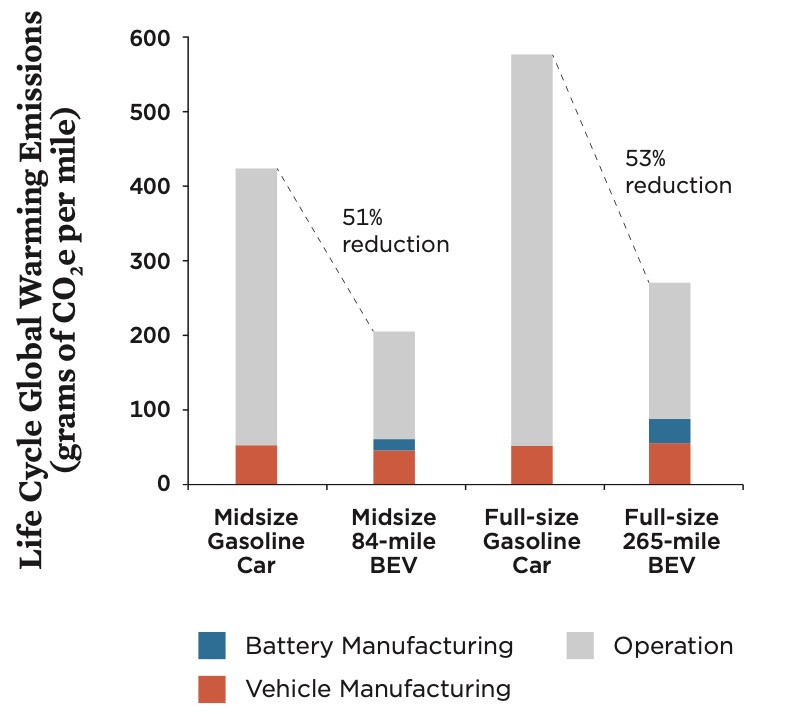
To really understand the impact of an electric car vs a gas car, you need to do a full life cycle analysis (LCA). An LCA sums up all the energy that goes into both building and using a vehicle over its lifetime. The Union of Concerned Scientists did an EV LCA in 2015 and has been providing regular updates over the years. Their latest update finds that the most efficient electric car (the Tesla 3) beats all gas cars in real world MPG in almost every state in the union. The 3 only gets 49 MPGe in Oahu because the power generation mix there is so dirty. On the other hand it gets a whopping 306 MPGe in upstate New York home of a ton of clean hydro-electric power. If you average the power generation mix across the entire USA in 2018 a 3 would get 116 MPGe. Given the incredibly low cost of renewable generation our grid is getting cleaner every year, so this will continue to improve, while a gas car's MPG will stay the same. If they guys at Aptera actually turn their amazing prototype into reality it will be more than triple the Tesla 3's MPGe and handily beat gas cars everywhere on the planet.
eBikes: The Actual Best EVs

Of course if you really care about the environment and your wallet, there is one way to travel that’s even more efficient than an electric car, and that of course is an electric bike. As I have detailed before, eBikes get between 1,000 and 3,000 MPGe, and that’s about 10-30 times better than an electric car. If you want to really walk the walk on efficiency, you should be riding one of these amazing machines for all short trips. Riding an eBike 100+ miles to visit family is a difficult feat though, and that’s where electric cars can really shine. Even our most efficient mass transit, a Greyhound Bus, only gets around 150 MPG per person. My Bolt gets 110 MPGe on the highway, so with 2 people it’s getting 220 MPGe per person and with my whole family of 4 it’s at 440 MPGe per person. Electric buses and trains may be able to beat this (this whacky 40,000 MPGe train type thing certainly does), but its nearly impossible to find them. For the time being, an electric car is the most efficient form of long distance travel. If you really want to save money eBike a bunch and rent an electric car the few times you actually need to. If you’re not quite ready for that, and still not sold on getting a full electric car then buy a used gas car that’ll last 3-5 years and die just as used electric cars get ridiculously cheap. To profit greenly, never buy another new gas car as long as you live.



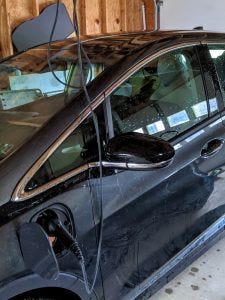
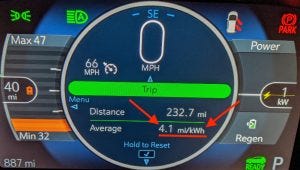
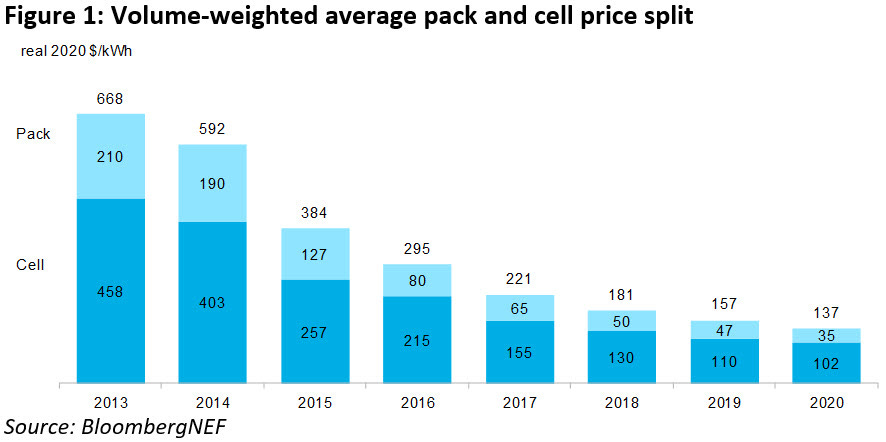
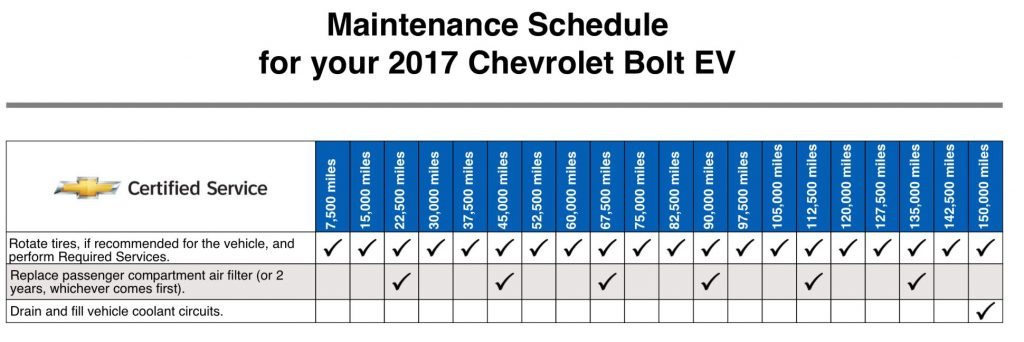
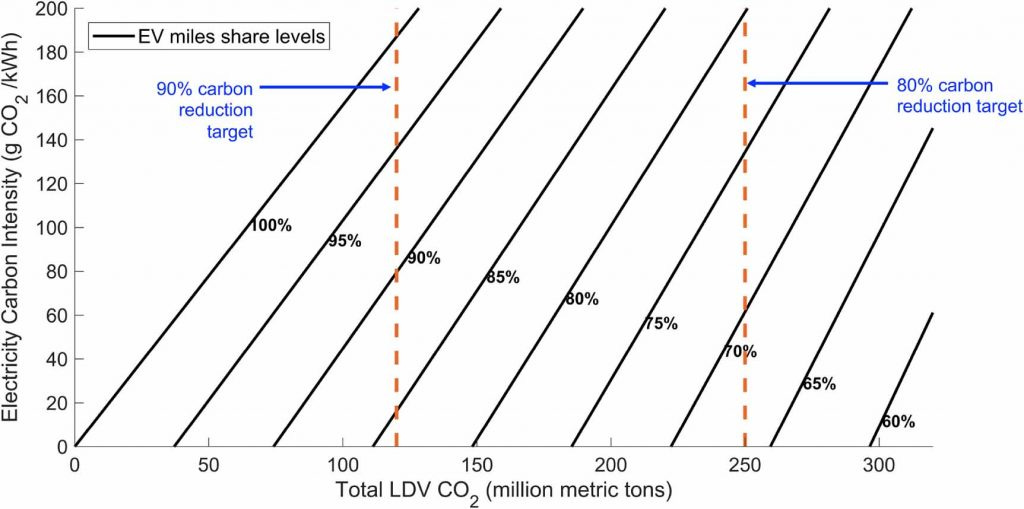

Incredibly janky port of comments from my old WordPress site:
Al Reichardt
2021-07-11 at 6:56 pm
Great job on the info you provided to us on our quest in buying a new car. It looks like we will be looking for a PHEV at this time. Not sure which one but we will let you know.